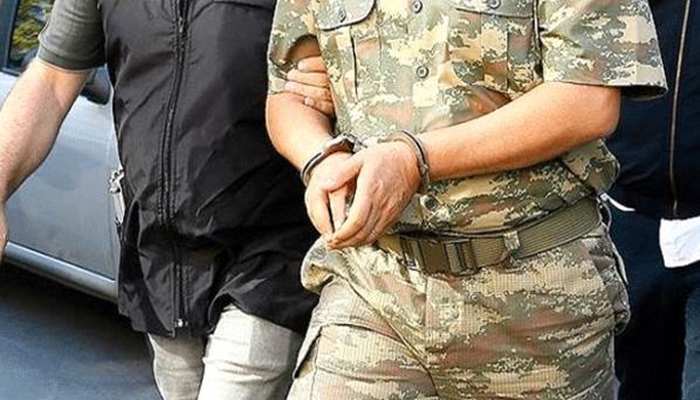Turkish police on Saturday detained 25 gendarmerie officers including some who had previously been suspended over alleged links to the faith-based Gülen movement as part of an investigation launched by the Bilecik Chief Public Prosecutor’s Office, the state-run Anadolu news agency reported.
The Ankara and İzmir chief public prosecutor’s offices on Friday issued detention warrants for 197 people, including police officers, military personnel, teachers and executives of the Aksiyon-İş union, in an investigation into the Gülen movement.
President Recep Tayyip Erdoğan and his ruling Justice and Development Party (AKP) government pursued a crackdown on the Gülen movement following corruption operations in December 2013 in which the inner circle of the government and then-Prime Minister Erdoğan were implicated.
Erdoğan also accuses the Gülen movement of masterminding a failed coup attempt in Turkey on July 15, 2016.
Despite the movement strongly denying involvement in the failed coup, Erdoğan launched a witch-hunt targeting the movement following the putsch.
A total of 62,895 people were detained in 2017 as part of investigations into the movement, according to Interior Ministry reports.
Turkish Interior Minister Süleyman Soylu on Jan. 5 said 48,305 people were jailed in 2017 alone over Gülen movement links. Soylu said on Dec. 12 that 55,665 people have been jailed and 234,419 passports revoked as part of investigations into the movement since the failed coup. On Nov. 16 Soylu had said eight holdings and 1,020 companies were seized as part of operations against the movement.
The Justice Ministry announced on July 13 that 169,013 people have been the subject of legal proceedings on coup charges since the failed coup.
Turkey has suspended or dismissed more than 150,000 judges, teachers, police and other civil servants since July 15, 2016 through government decrees issued as part of an ongoing state of emergency declared after the coup attempt.
The ruling AKP government dismissed a total of 24,977 military members including 150 generals, 4,630 officers, 2,167 noncommissioned officers, 1,210 specialized sergeants, 411 civil servants and workers, and 16,409 cadets following the failed coup over their alleged links to the Gülen movement.
The government has up until now employed a total of 15,850 military personnel including 1,763 officers, 4,135 noncommissioned officers, 3,698 specialized sergeants, 6,162 contracted privates and 92 civil servants, the report said.
The Turkish government announced on Jan. 2 that it would enlist 42,938 new military personnel. A total of 3,755 officers, 5,375 noncommissioned officers, 13,213 specialized sergeants and 20,595 contracted privates are planned to fill the ranks.
In February 2017 Defense Minister Fikri Işık said 30,000 new recruits would be enlisted in the Turkish military.
Official statements claim that a total of 8,651 military members including cadets and privates took part in the failed coup.
Director General of Public Security Selami Altınok on Dec. 12 said 22,987 police officers have been dismissed over alleged links to the Gülen movement.
“If it was a coup perpetrated by the Gülen movement and 25,000 military personnel and 22,987 police officers were dismissed for their connections to the movement, why did only 8,651 military members including cadets and privates participate in the coup?” is a question being asked by critics.
The government has been at the center of criticism for turning the Turkish armed forces into a political Islamist military in line with the wishes of President Erdoğan.
A military officer candidate was reportedly asked questions about the Quran and the anti-government Gezi protests of 2013 during an interview in October 2017.
In June, an imam-hatip, or religious high school, in İzmir province promised its graduates preference in enrollment at military and police academies.
Some find the Turkish government’s efforts to Islamicize the Turkish army alarming and warn that NATO risks having a member army filled with extremists.
In February of last year Henri Barkey, director of the Middle East Program at the Washington-based Wilson Center, said that many generals purged by the Turkish government are pro-NATO and pro-American, saying this could create a shift in Turkey-NATO relations.
